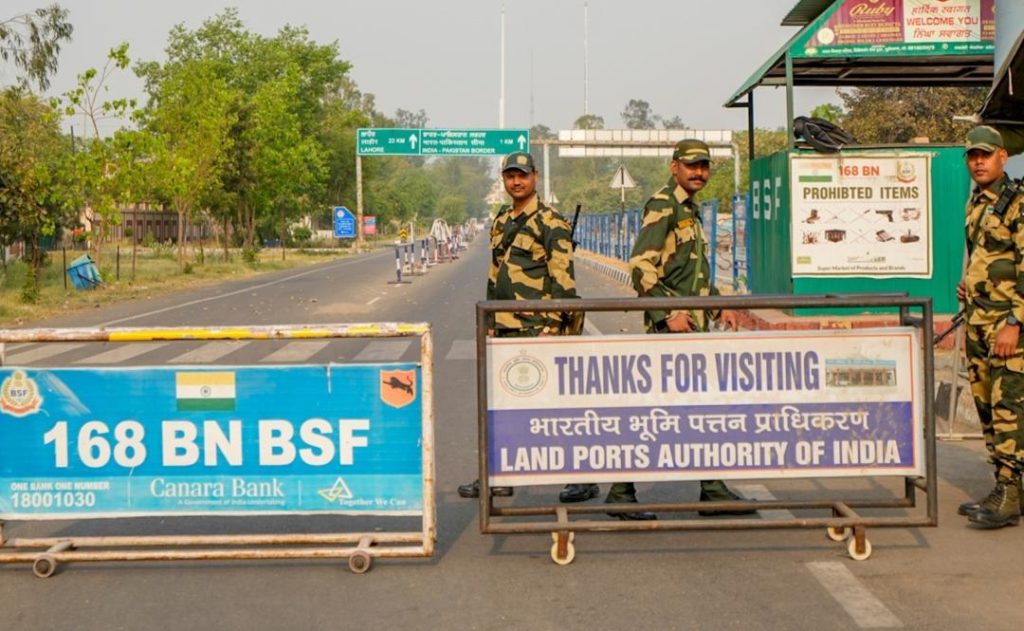
Attari-Wagah Border Between India & Pakistan Completely Closed
The Attari-Wagah border, a significant crossing point between India and Pakistan, has been completely closed, according to a report by PTI on Thursday. This decision came into effect after Pakistan stopped accepting its citizens who were deported by India, marking a significant escalation in tensions between the two nations.
The closure of the border was reportedly in response to the mass deportations of Pakistani nationals by India following the Pahalgam terror attack, which left 26 tourists dead. The attack had sparked widespread outrage and condemnation across the country, leading to a strong backlash against Pakistan.
The Attari-Wagah border, located in the Amritsar district of Punjab, India, and the Lahore district of Punjab, Pakistan, is one of the most heavily guarded and busiest border crossings between the two countries. It is a significant trade and cultural hub, with thousands of people crossing the border every day.
The closure of the border has significant implications for trade, tourism, and people-to-people ties between the two countries. The border is a vital route for the exchange of goods, services, and ideas between India and Pakistan, and its closure is likely to have a negative impact on the economies of both countries.
The decision to close the border is also seen as a major escalation in tensions between India and Pakistan. The two countries have a long history of tension and conflict, and the closure of the border is likely to further strain relations.
Pakistan had earlier stopped accepting its citizens who were deported by India, citing the lack of diplomatic relations between the two countries. India had deported over 100 Pakistani nationals in recent weeks, including some who were accused of being involved in illegal activities.
The closure of the border is likely to have significant implications for the thousands of people who rely on it for their livelihoods. The border is a key route for the exchange of goods, including textiles, food, and other essential commodities.
The decision to close the border also raises questions about the future of trade and economic ties between India and Pakistan. The two countries had agreed to increase trade and reduce tariffs as part of a comprehensive trade agreement, but the closure of the border is likely to set back these efforts.
The Attari-Wagah border has been a symbol of tension and conflict between India and Pakistan for decades. The two countries have fought three wars over the border, and the area has been the site of numerous skirmishes and attacks.
The closure of the border is likely to have significant implications for the security and stability of the region. The border is a key route for terrorist groups and other militant organizations, and the closure of the border is likely to make it more difficult for them to move goods and personnel across the border.
In conclusion, the closure of the Attari-Wagah border between India and Pakistan is a significant development that is likely to have far-reaching implications for trade, tourism, and people-to-people ties between the two countries. The decision is a major escalation in tensions between the two countries, and it is likely to set back efforts to improve relations.






